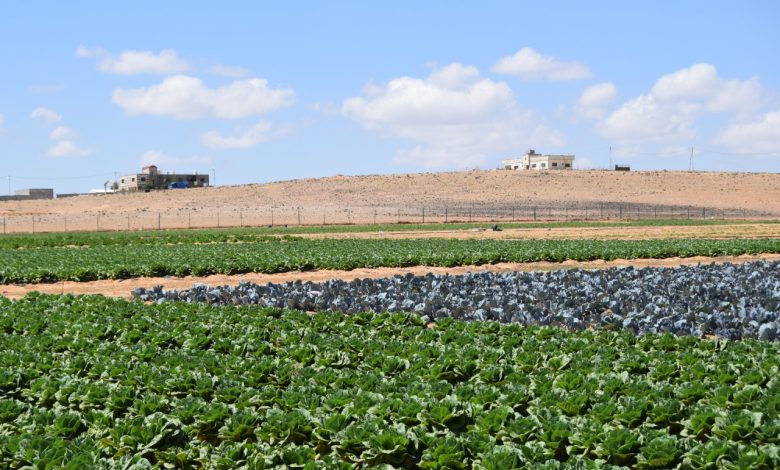
Jordan Daily – Under the framework of the Food and Agriculture Organization of the United Nations (FAO) Regional Priority on Rural Transformation, FAO, in partnership with the Ministry of Agriculture (MoA) in Jordan, organized a virtual meeting on advancing extension and advisory services from a pluralistic and market-oriented perspective.
The meeting was held on 25 November 2021, to present the findings and recommendations of the assessment of extension services recently conducted in Jordan, as part of the regional action on “Strengthening rural advisory systems in the NENA Region: Making rural services work for small-scale producers and family farmers”, implemented by FAO Regional Office for the Near East and the Inclusive Rural Transformation and Gender Equality Division.
The action addresses the status and role of rural advisory services from a pluralistic and market-oriented perspective, and aims to identify gaps, opportunities and entry points to inform policy recommendations and strategic planning at the country and regional level to strengthen the performance and inclusivity of the service system.
The meeting aimed to facilitate a national dialogue with stakeholders from different sectors on the salient findings of the study and the proposed policy recommendations for strengthening advisory services in Jordan, with emphasis on inclusivity, market-orientation and sustainable livelihoods of smallholders, giving due attention to women, youth and vulnerable producers.
Representatives from the MOA and relevant ministries, Chamber of Commerce, Industry and Agriculture, the private sector, education and research institutes, local and international NGOs, producer/farmer-based organizations and cooperatives, and pertinent experts and professionals attended the meeting.
FAO Representative in Jordan, Nabil Assaf said that “Considering the challenges of small-scale family farming in Jordan, adequate provision of and access to extension and rural advisory services becomes essential, where rural advisory services play a crucial role in improving smallholders’ livelihood and reducing rural poverty by increasing their productivity, managing their farms as a sustainable business, linking to input and output markets, and acting collectively to improve economic operations.”
He added, “FAO in Jordan, in synergy with the Ministry of Agriculture, has assessed the current status of rural advisory services in Jordan, to leverage the role of extension and advisory services in better responding to the livelihood needs of small-scale producers and family farmers.”
The Assistant Secretary-General for Agricultural Extension at the MoA, Baker Balawneh, said “The assessment studied the reality of agricultural extension in Jordan and identified many factors of attention enhance the impact of agricultural extension in helping small farmers to increase productivity and quality, which leads to improving their living conditions. Such as the necessity of increasing the number of specialized agricultural extension agents and building the capacities of the new extensionists with special focus on providing marketing opportunities for rural products through exhibitions.”
During the meeting, May Hani, Policy Officer at FAO Inclusive Rural Transformation and Gender Equality Division gave an overview of the global trends and regional perspective that drive this initiative, and the conceptual framework on Pluralistic and Market-Oriented Services that guided its implementation.
Subsequently, Samia Akroush, Senior Agriculture Development Specialist, presented the key findings and recommendations of the study of the pluralistic and market-oriented agricultural extension and advisory services in Jordan.
The meeting provided an opportunity to share and discuss with participants’ views and perspectives on enhancing the services system, taking into account the specific needs of small-scale farmers recognizing their heterogeneity. This implied reflecting on the level of services’ accessibility, the capacities of service providers from different sectors, issues of governance, accountability, inclusive targeting, market orientation and financing.

